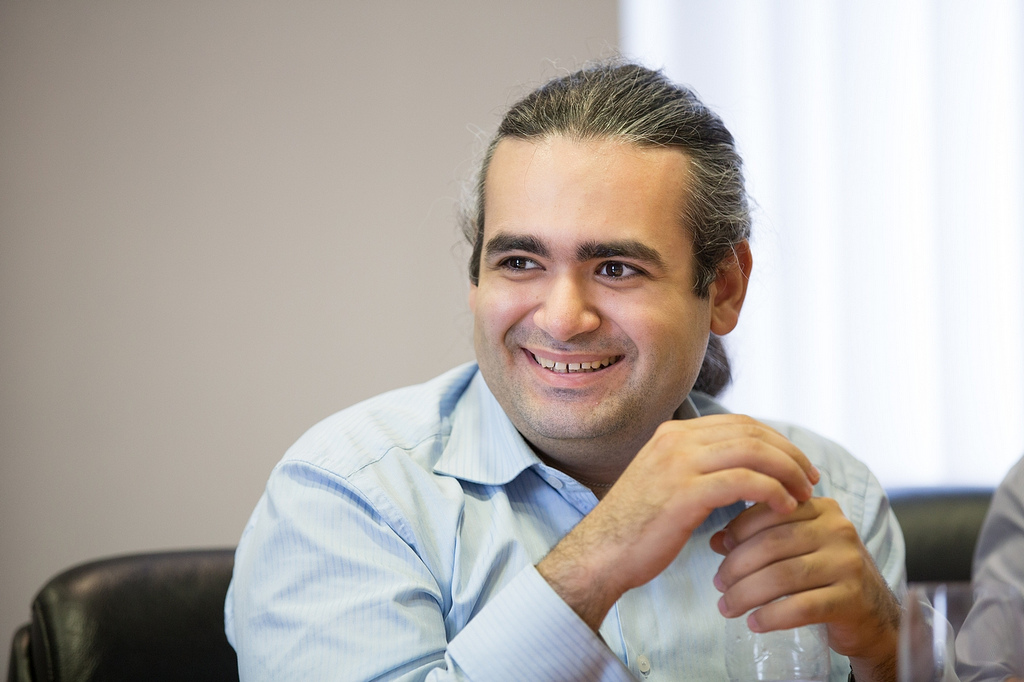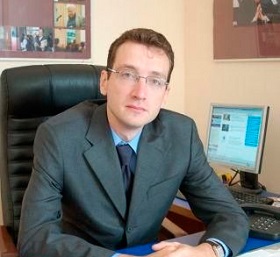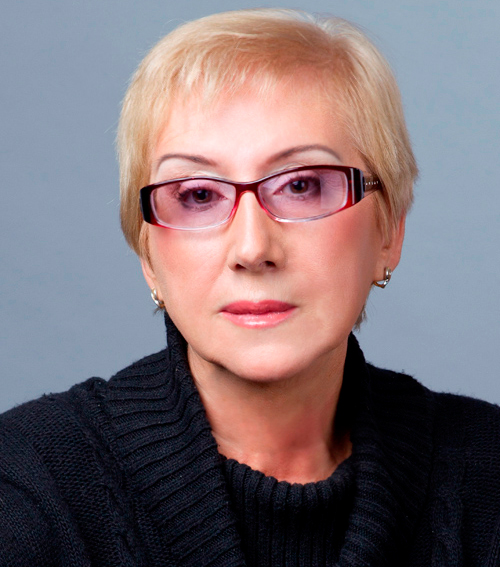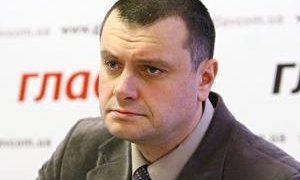Scenarios for Ukraine. Russian and Ukrainian experts' comments
(no votes) |
(0 votes) |
Experts from Russia and Ukraine comment current events and suggest their scenarios of the future development of the crisis. The interviewees are Gevorg Mirzayan, U.S. and Canadian Studies Institute, Aleksandr Guschin, Russian State University for the Humanities, Evgeniya Voiko, Financial University, Ella Zadorozhnuk and Aleksandr Pivovarenko, Institute of Slavic Studies, Aleksandr Nosonovich, Baltic Federal University, Aleksandr Litvinenko, “New Ukraine” Institute, Oksana Gorobets, Institute for Economics and Forecasting.
Experts from Russia and Ukraine comment current events and suggest their scenarios of the future development of the crisis.
Gevorg Mirzayan (RAS U.S. and Canadian Studies Institute): Interests Always Need to be Protected,
Alexander Gushchin (Russian State University for the Humanities): Russia is signalling that it is ready for a dialogue
Eugenia Voiko (Financial University of the Russian Federation Government): The federalization of Ukraine would be the most acceptable scenario
Ella Zadorozhnyuk (RAS Institute of Slavonic Studies): To establish a system of taxation Ukraine in consultation with Russia, the European Union and the United States
Alexander Nosovich (Baltic Federal University): The Bifurcation Point: Ukraine Caught between Nationalism, Federalism and Disintegration
Alexander Pivovarenko (RAS Institute of Slavonic Studies): The Ukrainian Situation: What to Avoid and What to Strive for
Olexander Litvinenko (New Ukraine Institute of Strategic Studies): No sober-minded person in Ukraine candeny that Russia has very serious strategic interests on Ukrainian territory
Oksana Gorobets (Institute of Economics and Forecasting, Ukrainian National Academy of Sciences): Ukraine will not disintegrate
See also:
Igor Ivanov (RIAC President): Russia and Europe Have to Rescue Ukraine Together
Artyom Lukin (Far Eastern Federal University): China will be the principal winner in the battle for Ukraine

Gevorg Mirzayan: Interests Always Need to be Protected
Gevorg Mirzayan, Research fellow at the RAS U.S. and Canadian Studies Institute. Correspondent, Expert magazine.
Russia had to move its troops into Crimea. If we confine ourselves to addressing the initial tasks and do not rush ‘to take Vienna’, to borrowBismarck’s words, the West is unlikely to impose tough sanctions against Russia.
Before talking about the consequences and the cost of the Russian intervention, one has to make it clear that, under the circumstances, Russia had no choice. It was not that, as the West claims, Russia wanted to subjectUkraine. First, that country saw a violent coup which toppled the legitimately elected president. The people who took his place, instead of setting about to consolidate the country, acted on the ‘woe to the vanquished’ principle. In thiscase, the ‘vanquished’ were thought to be the Russian-speaking population of the country’s south-east. Thus, the Supreme Rada voted to repeal of the law on languages that granted regional status to the Russian language (acting president OleksandrTurchynov has now vetoed the move, but it was too late) and launched a lustrationprocedure with regard to them. The newly appointed Ministerof Education,SerhiyKvit, a nationalist, lost no time in declaring his intention to rewrite history and ban all the textbooks that children used under the previous government. There is a danger that West Ukrainian nationalism might become the official state ideology. The authorities are turning a blind eye to the sway of the representatives of that ideology from the Right Sector. Under the pretext of ‘defending law and order, the local Nazis are plundering, extorting, persecutingundesirables and committing other acts of lawlessness. They have promised to come to the south-east soon“to protect law and order” there. In this situation, Russia was duty-bound to protect its citizens and Russian-speaking people in the south-east of Ukraine.
Second, the course elected by the new authorities posed a serious threat to Russian interests in the whole country. This was not only because the new authorities might renounce Yanukovych’s obligations to Moscow (credit, debts for gas, the Kharkov Accords). The new Prime Minister, ArseniyYatsenyuk, said he wasready to sign an association agreement with the European Union at any moment, ignoring Moscow’s position. For Russia, that would spell a total loss of economic ties with Ukraine and the future loss of Sebastopol as the base of the Black Sea Fleet, as Ukraine would turn into a kind of cordon sanitaire.
Finally, there was thequestion of losing face. The agreementof February 21 was signed to a large extent because Vladimir Putin, at the request of the Western countries, demandedthat Yanukovych make a compromise with the opposition. In return,we were promised that the agreement (that envisaged the creation of a national unity government and the withdrawal of demonstrators from the streets) would be honoured. But we were cheated. The agreement was thrown out within hours, and Russia is supposed to reconcile itself to that. A great power cannot turn a blind eye to such things.
As a result,the decision was made to move troops into Crimea. The move was‘demonstrative’on a number of counts. It sent a signal to the West that Russia would not tolerate the grossviolation of its interests and was prepared to take radical measures. It also sent a signal to the Ukrainian authorities that Moscow would not abandonthe country’s Russian-speaking citizens. To the Russian-speaking citizens in the south, the message was that if they acted like the Crimeans and came out in support of their rights, they would get the fullsupport and protection of Moscow (Vladimir Putin’s assurance that if the new authorities threatened the Russian-speaking population in other regions, Russia would do everything to protect them, was not an empty threat).
Moscow’s move evoked predictable criticism from the West, but there is no reasontoexpect harsh punishment at this point in time. The reason is that the West is aware that our demands are moderate and in some ways justified. The Russian army is not going to seize Kiev and Putin has said firmly that there is no question of annexing Crimea. Russia’s task is to force thecentral government in Ukraine to stop discriminating againstand lustratingthe country’s Russian-speaking people, and get the country tofederalizeits territory by giving the regions more powers and possibilities to defend their way of life. The Russian demand has already been met with some support in Europe, which is also tiredof the constant inter-cultural crises in Ukraine. Germany has discreetly come out in support of the federalization of Ukraine. The European media is also aware of this and has refrained from roundly condemning Russia as it did over Syria.
Furthermore, any serious economic sanctions against Russia on Europe’s part would create a problem for the Europeans themselves. Our economies are closely interconnected.And in terms of reliability, Europe has no alternative but to buy its energy from Russia (and once the South Stream is launched, it will also have no alternativein terms of transit). Europe does not want to risk its investments in the Russian economy, nor does is want to break off relations with Moscow over Crimea.
As for the United States, which is Russia’s fiercest critic, its statements are either a kind of bluff, or they are playing against the countriesown national interests. It is no secret that some East Asian states are poised to start a ‘battle for Moscow’ because in a future conflict between China on one side and the United States and Japan on the other, Russia’s position will be key. Without us, the United States and Japan would not be able to form a collective security system against China, and Beijing would not be able to ensure the stability of its north-western regionsor thereliable supply of energy bypassing the Straitof Malacca. It is no accident that the Chinese have informally supported us during this crisis and have even shown a willingness to blackmail the United States: Beijing understands how important Ukraine is for Moscow and hopes that it will reciprocate on issues that are important toChina. If the United States continues to exert pressure on Russia and starts imposing harsh economic sanctions, China will step in and the Russian–Chinese agreement will be implemented. That in turn would create serious problems for the United Statesin East Asia.
So if Russia does not go on to invade the whole of Ukraine and keeps its demands to the Ukrainian authorities moderate, the worst we can expect is token political sanctions. For example, disruption of the G8 summit. However, even if we are thrown out of the G8, it would be nothing compared to the threats that would have arisen if Russia had chosen not to protect its interests in Ukraine.

Alexander Gushchin: Russia is signalling that it is ready for a dialogue
Alexander Gushchin, Associate Professor, Department of Post-Soviet Countries, Russian State University for the Humanities.
President Putin’s press conference gives the confrontation a different complexion. Russia has taken a step back. Many experts and the media will now start writing that moving in troops was never planned, but I think it was considered as an option. There is no doubt that the Russian-speaking population in Crimea and Eastern Ukraine was at risk considering the radical elements on Maidan Square, and in addition there was a sense that Russia should get its own back after the obvious setback in Ukraine when Russia had its hands tied because of the Olympic Games. So, I think the use of force was seen as an option. But in the absence of solid data on mass desertions from the Ukrainian army (whatever criticism may be levelled at it, it is still large enough to offer serious resistance), and having pressure exerted on it from the West, Russia is signalling that it is ready for a dialogue.
The dialogue will be anything but easy, because the demand to go back to the accord of February 21 can hardly be met. But Ukraine, for its part, will have to make serious concessions on Crimea, a message the European Union and the United States will no doubt deliver to Kiev. Most likely, Crimea will become an entity with a broad level of autonomy, practically a confederation. This is the most desirable outcome. And considering the presence of Russian troops there, it will be largely out of Ukraine’s control,although it will not be a fully independent subject. As for Eastern Ukraine, some regions – notably the Donetsk, Lugansk and Kharkov regions – may be granted broader powers. It will take a long time to develop relations with the Kiev authorities, and it will be a bumpy ride. Despite the fact that Yanukovych is no longer a serious political force, Moscow is not yet prepared for an open dialogue with Kiev. Besides, the personal factor is at play, and Yulia Timoshenko is now more likely to assume a mediating role.
.jpg)
Eugenia Voiko: The federalization of Ukraine would be the most acceptable scenario
Eugenia Voiko, Ph.D. in Political Science, Assistant Professor of the Applied Political Science Department at the Financial University of the Russian Federation Government.
The Russian leadership has indicated that it is ready to use force in Ukraine. But it seems that that would really be ‘last resort’, and the authorities will not have recourse to it under the current circumstances. An information campaign is an attribute of every modern conflict, and Russia’s current actions are part of such a campaign. By declaring its plans with regard to Ukraine, Russia is above all sending a signal to the Western elites that it has its own interests – interests that have to be taken into account regardless of the political orientation of the new Ukrainian leaders.
The federalization of Ukraine with the granting of a package of ‘autonomy options’ to the regions in making decisions on some issues would be the most acceptable scenario. The new Ukrainian authorities may, after all, make such a concession in exchange for agreements with Russia on gas supply and loans. That would enable Kiev to ease tensions on the ‘Crimean track’, which is particularly important for the outcome of the upcoming referendum.
As for the role of Ukraine in Russia’s energy policy, the latest events will certainly have a diminishing effect. For Russia, the current uncertainties will provide an argument in favour of pushing ahead with alternative projects, namely, Nord Stream and South Stream. After a lull on the ‘gas front’ as a result of internal stabilization under Viktor Yanukovych, the issue of uninterrupted supply has escalated once again. Even in the context of anti-Russian rhetoric in Europe, this will give more points to the Russian gas projects bypassing Ukraine.

Ella Zadorozhnyuk: To establish a system of taxation Ukraine in consultation with Russia, the European Union and the United States
Ella Zadorozhnyuk, Dr. of Historical Sciences, Department of Modern History and Socio-Political Issues of Central and South Eastern European Countries, RAS Institute of Slavonic Studies, RIAC expert.
U.S. Secretary of State John Kerry recently visited Kiev. As usual, his task was to promote the models of democracy. These may well have been the models of Jeffersonian democracy, in which the freedom of the people and revolution were the central concepts.
Thomas Jefferson (1743–1826; author of the 1776 United States Declaration of Independence; as President of the United States from 1801 to 1809, he established diplomatic relations with Russia) and his adherents, during the preparatory stage of the revolution, put forward the slogan “no taxation without representation”, which meant that citizens who pay more taxes (not only the oligarchs who were masters at tax evasion) should also be involved in the making of key decisions.
Territory-wise, the lion’s share of taxes into the Ukrainian treasury is paid by the people in the south-eastern regions, where the main industries are concentrated. Some of their products are in demand on the world market. At the present time, the tone of political life is far set by the Maidan in Kiev, which is dominated by protesters from the western regions. And it is these regions which pay the least amount of taxes into the Ukrainian budget (both in terms of volume and on a per capita basis).
Naturally John Kerry, who represents the Democratic Party that still adheres to Jefferson’s ideas, did not mention this fact. Nor did he cite another famous Jefferson quote: “The tree of Liberty must be refreshed from time to time with the blood of patriots and tyrants. It is its natural manure.” Blood has already been spilled on Maidan Square in Kiev, but it merely demonstrated the contradictions without resolving them. According to Jefferson, these are the contradictions between the ‘hereditary nobility’, with which the hated oligarchs and corrupt bureaucrats can be associated, and ‘the natural aristocracy’, which in Ukraine, alas, is represented by the nationalist radicals.
It is unclear which of Jefferson’s ideas John Kerry had in mind, if indeed he was guided by lofty principles and not by political expediency in the spirit of radical American pragmatism.
On the strength of the above, I propose the following scenario: to establish a system of taxation Ukraine in consultation with Russia, the European Union and the United States. Perhaps such constructive collaboration could not only bring the positions of all the parties closer together, but also generate a kind of mutual learning in such a complex area of running society as taxation.

Alexander Nosovich: The Bifurcation Point: Ukraine Caught between Nationalism, Federalism and Disintegration
Alexander Nosovich, Baltic Federal University, Observer on the RuBaltic.ru.
The disintegration of Ukraine can be considered a real possibility, at least in the mediumterm. In the current political situation it appears unlikely (with the exception of Crimea), because Ukraine lacks influential elites interested in territories splitting from the country. Moreover, the leading influential groups are not even interested in changing its existing system of government.
A hyper-centralized unitary state works best for the post-Soviet Ukraine’s competitive oligarchy-based economic model and political system, which has been far from dismantled by the dramatic events of November 2013 – February 2014 in Kiev.
It’s no coincidence that for the first time since the political crisis broke out, Ukraine’s oligarchs (represented by Ihor Kolomoyski) have stated clearly and unambiguously their position on the country’s territorial integrity. Kiev is in the process of appointing the leaders of Ukraine’s main financial and industrial groups as heads of its troubled eastern regions: Ihor Kolomoyski has become governor of the Dnepropetrovsk Region, while Serhiy Taruta has taken up the same position inthe Donetsk Region.
In this sense, the Ukrainian revolution is not over: Viktor Yanukovych’s regime has been toppled and the dismantling of the constitutional system has begun, and that is all. However, the political class has not been replaced: instead of afaction of the old elite, a coalition of other elites, without any discernable differences from the fugitive Donetsk clan, has come to power. A tapped conversation between Catherine Ashton and the Foreign Minister of Estoniahas demonstrated once again that the Maidan is well aware of this too. That’s why the current lull in Kiev is only temporary.
In turn, the regional political movement in the eastern and southern regions will continue to grow. This movement is only just beginning right now, and it is unlikely to achieve a quick success: no organizational structures have been established and protests are not widespread enough.
However, the Maidan has kick-started the process of awakening of South-Eastern Ukraine,whose political landscape had long been monopolized by the Party of Regions, which used to nip every challenge in its electoral field in the bud while not adequatelyrepresenting the interests of its own voters.
Now the eastern and southern regions (as well as Kiev and Western Ukraine) are going through political self-organization. In the southeast, it will be driven first of all by the choice of Ukrainian nationalism as the official ideology, which the new leaders in Kiev are most likely to make, and secondly by Ukraine’s association with the European Union, with the inevitable consequence of a crisis of national manufacturing. If public statements of the defacto head of state Yulia Timoshenko are any indication, the EU Association Agreement is the key issue of political horse-trading of the new Kiev leadership with the West – a component of the price to pay for the financial, political and diplomatic support from the European Union and the United States for Ukraine. Yet the creation of a free trade zone will only accelerate centrifugal tendencies in the eastern and southern regions. Therefore, Ukraine will likely disintegrate at the next stage of its political transformation. The only alternative to this would be a full replacement of its ruling establishment, including regional elites;an elimination of oligopoly in the economy and oligarchy in politics; a decentralization of government; and a federalization of the country recognizing Ukraine’s regional diversity and abandoning forced nationalism-driven Ukrainization.

Alexander Pivovarenko: The Ukrainian Situation: What to Avoid and What to Strive for
Alexander Pivovarenko, RAS Institute of Slavonic Studies.
Ukraine is a multi-lingual and multi-denominational state. We deliberately do not use the word ‘ethnic’, out of respect for the opinion that Ukraine is inhabited by Ukrainians. However, as recently as at the late 20th century, we were witness to howserious religious and minimal language differences in another country(the differences between the Serbs and Croats in Yugoslavia) created the feeling that peaceful coexistence had become impossible. Religious diversity in Ukraine is a fact that plays an important role in the current events. And the differences between the Russian and Ukrainian languages are much greater than those between Serbian and Croatian.
The first actions of the new Kiev authorities have shown that at least part of the new regime believes that the Ukrainian language should prevail over Russian, as witnessed by the situation surrounding the Law on the Principles of the State Language Policy. One can understand Kiev when it seeks to prove that the rights of the Russian language are not being infringed upon, as the Ukrainian ambassador to the UN Security Council Yuriy Sergeyev strenuously argued. However, one cannot deny hard statistics that show that teaching of the Russian language in schools has been gradually declining since 1991.
The emergence of even more extreme statements and initiatives have done little to pacify the situation. One can therefore understand the worries of the Russian-speaking population in the south and east of Ukraine.
If the Kiev authorities turn a deaf ear to the voices in the east and south, the consequences may be dire. But it looks as though the regions will no longer settle for minimal concessions. The Autonomous Republic of Crimea has made a strong bid for independence. There is talk of self-determination of the eastern and southern regions. Kherson, Nikolayev and Odessa reportedly want to join the Crimean autonomy. It remains to be seen whether this is a real prospect, but the very fact that there is such talk shows that regional aspirations are there. Thus, the question of the federalization of Ukraine is becoming ever more relevant.
The unitarization of the state, especially if imposed by force, will not be seen as a fair way out of the crisis in all the country’s regions. In that sense, Ukraine risks following the path of Croatia in the 1990s.
Regional Parallels
In the 1990s, two territories in Croatia sought independence. One was the predominantly Croat Istria peninsula; Croats made up 70–72 per cent of the population on the peninsula, while 20 per cent called themselves ‘Istrians’. The other was the autonomous Republic of Serbian Krajina created in the south and east by Croatian Serbs (580,000 or 12.2 per cent of the population), which in 1990 refused to recognize the republic’s nationalist government. As soon as it came to power, the new leadership adopted a constitution that discriminated between the Croatian nation and the ethnic minorities, which the Serbs saw as an attempt to create an ‘ethnically clean’ Croatia like the Ustaše (members of the Croatiаn Revolutionary Movement) during World War II.
Of course, the two situations are not identical. But they do share some features with what is happening in Crimea. Like Istria, Crimea is a peninsula and its people identify themselves as ‘Crimean’ in the same way that the people of Istria thought of themselves as ‘Istrians’. The similarity between Crimea and the Serbian Krajina consists in the popular character of the uprising and the process of self-determination (the creation of parallel structures and quick preparation for a referendum). There are also geographical similarities because of the closeness to the countries towards which the three regions referred to gravitated.
There are also similar external circumstances: the threat of dictate from the centre and the advent at a certain stage of a third party possessing considerable military potential. The Yugoslav People's Army intervened, though not without hesitation, in the conflict in Croatia after Croatian police, backed by volunteers, tried to spread Zagreb’s power to Serbian territories. An example was the events in Borovo Selo on May 1–3, 1991, where at least 5 Serbs and 12 Croats died. One can only guess what the Kiev authorities and the right-wing radicals supporting them would do to gain control over Crimea. However, it cannot be denied that the intervention of the Russian military contingent, as of today, helped to prevent the spilling of blood.
The political scenario
The Ukrainian authorities should understand that by seeking to create a unitary state dominated by one ‘national’ culture they are courting disaster. A sad example is Serbian Krajina, where an offensive of the Croatian army in May–August 1995 caused more than 300,000 people to flee. If Kiev continues to impose its own rule it will have to do it by force. If a compromise is not reached, those who have shown that they reject the idea of ‘Ukrainianization’ will lose their rights. There will be the risk of mass exodus – either through voluntary resettlement or through deportation. Massacres cannot be ruled out. The only way to avoid this is to engage in negotiations.
One way of political settlement could be the emergence of a genuinely regional political force in Crimea capable of representing the peninsula at the Supreme Rada. The present Rada has proved ineffectual and the Party of Regions has not coped with its task. The creation of a party representing Crimea would:
- Guarantee succession of leadership, which would enhance its legitimacy.
- Guarantee a certain distance from the centre, symbolically underlining the region’s special status.
- Give the region a real voice in the Supreme Rada’s law-making. On the other hand, the presence of Crimea in the Rada would strengthen the political system of the new Ukraine.
The Croatian Istrian Democratic Assembly (Istarski Demokratski Sabor) is an example. It has never lost an election on the peninsula during the twenty-odd years of its existence. In 2000, it joined the multilateral coalition led by the Social Democratic Party. The coalition won the election in the first democratic change of power in the history of the republic.
I would hazard the suggestion that a hypothetical strengthening of a Crimean party may meet with resistance from the Party of Regions, which controls the Supreme Council of the Autonomous Republic of Crimea and which may try to regain some of its authority through Sebastopol and Crimea. Perhaps the parties representing individual regions should appear in the east of the country. However, these issues could be discussed in a more hands-on manner after the results of the referendums on federalization become known.

Oleksandr Lytvynenko: No sober-minded person in Ukraine candeny that Russia has very serious strategic interests on Ukrainian territory
Oleksandr Lytvynenko, Dr. of Political Science, Former Deputy Director of the National Institute for Strategic Studies in Kiev and one of the founders of the New Ukraine Institute of Strategic Studies.
What are the most likely scenarios of the development of the situation in Ukraine?
In my opinion, Russia’s position, what the Russian leadership will do and how far Russia will go in its actions will play the key role.
How do you see the future relations between Ukraine and the European Union?
Ukraine will do everything to move closer to the European Union. Russia has greatly facilitated its task, leaving Ukraine no options by pushing it to the West and giving it little room for manoeuvre. Ukraine will try to sign the Association Agreement as soon as possible and get assistance from the European Union and the United States. The Ukrainian parliament has already appealed to NATO and other Western organizations.
How will this impact the Russian–Ukrainian relations?
The situation around Ukraine is so uncertain that I find it hard to describe the character of Russian–Ukrainian relations. During his press conference on March 4, President Putin said that a new state has been created in Ukraine, a state with which Russia did not sign any agreements. There is no legal framework for bilateral relations between our countries. Russian troops have violated the Ukrainian borders; Russian defence forces, which are reliably known to include Russian soldiers, have sieged Ukrainian military units. The Russian Navy is demanding the surrender of Ukrainian ships. I repeat, the legal basis for relations has been destroyed. I think the most terrifying scenario is the escalation of the situation into war.
I hope that the Russians will stop the escalation of the conflict and open negotiations. I am convinced that we can and must find a mutually acceptable solution because no sober-minded person in Ukraine candeny that Russia has very serious strategic interests on Ukrainian territory. But these negotiations should be conditional on the pullback of the Russian troops to their permanent positions and the termination of direct military support of the separatists. Then we can sit down and try to work out a mutually acceptable solution.
Who do you think is likely to come to power in Ukraine?
That is impossible to tell. Theoretically, the elections are to be held on May 25. One thing is clear: Viktor Yanukovych will not be the leader of the country.
Oksana Gorobets: Ukraine will not disintegrate
Oksana Gorobets, Researcher at the Institute of Economics and Forecasting.
Do you think Ukraine might disintegrate?
Ukraine will not disintegrate. Ukrainians have long been afraid of this, but now we can see that it won’t happen because, strangely enough, Eastern Ukraine and Crimea want to be part of Ukraine – unfortunately for Russia. There have been calls in the past from Ukrainians for the country to be split into federations, and Crimea used to want to be closer to Russia. But the murders on Maidan Square, Russian troops in Crimea, and Russian fighters in Eastern Ukraine have turned the situation around. Those Ukrainians who thought they wanted to be together with Russia now want to be part of Ukraine: they don’t want any more military actions.
Who do you think might come to power in Ukraine?
There are already three opposition groups in Ukraine. There are the leaders who are in charge of Ukraine right now, and I believe they will stay in power. The former ruling Party of Regions is unlikely to break through to secure any government positions. Petro Poroshenko and Vitali Klitchko are leading the recent opinion polls. I think they will satisfy everybody – in Eastern, Western and Central Ukraine. It is possible that Crimea could remain the autonomous region it is now, though this is not highly likely.
There’s great hope that the Ukrainian government now wants to listen to its people. Then Ukraine will also have the right to vote, to raise issues and ensure that they are heard and resolved.
What do you think will happen to relations with Russia?
I think they will be more cautious. Agreements will be revised thoroughly. The agreement on the Black Sea Fleet based in Ukraine will probably be revised too. And even if Ukraine were to suffer economically or otherwise, it wouldn’t be as important any more. Ukraine will attempt to maintain friendly relations with the Russian people, yet it will be very cautious in terms of any agreements.
(no votes) |
(0 votes) |



